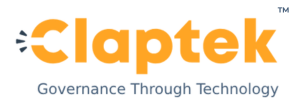Part of the corporate world, you might have realized one thing: Every business is fragile and things might not work the way you want it to, right?
While the external issues are subject to changes, internal scandals need to be controlled and monitored. There have been instances where corporate compliance is compromised and it is the board that it put to question. No matter what happens and how it is expected that the board is well versed in everything that’s happening within the enterprise as they are the ones who remain answerable to the outside world.

What does The Law state?
Legally, every member individually as part of the team of board of directors has fiduciary duties that concern the organization’s compliance and ethics. It is believed that if the board isn’t aware of the duty, they themselves aren’t complying by the law (fiduciary duty). Starting with the duty of care, the duty of obedience, and the duty of loyalty, the board needs to be aware of all.
Stringent policies have been laid that states it is the responsibility of the board to be aware of rules and further, have oversight on whether the organization complies with the same.
As per the law by the Delaware Chancery Court, it is expected that every board must put in efforts (good faith) to embed compliance measures and further, ensure that these are duly exercised within the organization.
The Fiduciary Duty: What This Includes?
Both under the state and the common law, members of the board along with the directors are expected to follow the fiduciary duty. This includes three major hallmarks of governance as:
- Duty of loyalty
- Duty of care
- Duty of obedience
These responsibilities surpass the investment, monitoring, administration and property distribution that are part of the company’s public assets. Further, the duty extends to the intangible assets of the organizations, as the reputation and value of the company.
Failing to abide by the above, the law can righteously punish the board and even charge them for criminal acts.
The Role Played By the Board
It is unquestionably evident that the board has an important role when it comes to corporate compliance. As a matter of fact, it is considered a critical role. The cases, mentioned by Delaware, opine that corporate compliance is effective in managing and monitoring risks. And the manner in which the board adheres to the compliance law and significant rules implies the future course of the company.
What’s important for the board is to accept that they need significant tools and programs to keep their corporate compliance in place. While this cannot be infallible what we expect is this to be reasonable. Consider a company that has been suffering from major setbacks, thanks to their poor compliance. It is expected that the board has significantly more oversight. Corporate compliance isn’t something that the board sets and then forgets. Instead, it is something that needs to be visited time after time and requires strict vigilance.
With this, we don’t suggest the board to bring in the topic in every meeting or arrangements. The board needs to be reasonable enough to ignite discussion. Also, a strategic approach has to be adopted to assure effective oversight of corporate compliance.
In case you are not sure where to start and how to get your organization back on track, you need not work on everything at the same time. There are four core areas that the board must focus on and have a detailed outlook.
1. Compliance and Ethics
The first area that needs to be strengthened is ethics. Strict measures must be taken to assess and evaluate the total scope of the policies that adhere to corporate compliance and ethics. Meetings and surveys need to be conducted to make sure all of the members of the board, the managers as well the employees comply with the organizational policies and laws, enterprise-wide.
2. Key Policies and Procedures
Post the ethics, comes core policies and business procedures. Rules must be laid down to scrutinize the policy statement of the organization. The same must be evaluated to see whether or not, these have been penned down clearly. Such a method must be adopted by the board and then followed consistently.
3. Aligns Incentives
Organizational incentives must be aligned by the board in a way that maps the goals of the same. The board must take measures to ensure that rewards given do not conflict with the organizational goals. This implies that incentives must adhere to the core of the business.
4. Obtain Reports
Finally, the board must lay out a notice seeking regular reports that would outline the metrics associated with organizational ethics and compliance.
Compliance Management Software: Your Compliance Partner
While we expect the board to remain at the forefront and have oversight over corporate compliance, manual systems fail to map the quality of laws. Several organizations have board calendars that are used to detest the work done by the company, perform audits and conduct training courses annually.
Even though things are better here, the manual system tends to overlook important aspects while focusing on less important factors. Until and unless, there are multiple members overseeing the board, it is totally irrefutable.
One way to facilitate smart compliance is by adopting compliance management tools. These would be created keeping in mind the rules and important protocols of corporate compliance. As so it appears, the corporate compliance duties are cyclical in nature, the tool is designed to have separate dashboards, each focusing on a single duty. System alerts are initiated within the software so as to make sure the board never overlooks any activity.
Also, the tool can document communications and even record them to better deal with customer issues and complaints. Reports can then be automatically generated on the performance of the company aiding audits. In addition to the above, the software has precoded risk management portals that would have all the rules and policies hardcoded. Failure to follow the same, the board and all others having access to the portal would receive notifications and alerts. This way everyone can actively contribute to corporate compliance and risk management.
The Conclusion
It is pretty obvious that the board has a crucial role in corporate compliance and must abide by the same. However, the board need not carry the load alone. Even though the management tools in place, considering an external opinion is always a smarter way to assess risk and mitigate them.
Claptek is one of the agencies that might be of interest. We have been serving the sector for years and consider ourselves to be fit for the job. In case, you have been looking for some company or expert to help you rather assist in monitoring risks associated with corporate compliance, we are happy to serve.
Staffed with some of the best risk managers and officers, we guarantee quality service backed by comprehensive strategies. Our team excels in collaboration and teamwork and would do all that’s needed to aid better operation within your enterprise. What’s more?
Claptek hails as one of the leading risk management company and our clients consider us to be the best. Let us connect to know each other better!
